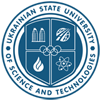LIFE HACKS FOR NON-ENGLISH-SPEAKING LIBRARIANS: FEATURES OF COMMUNICATIVE PRACTICE IN TRANSLATION
DOI:
https://doi.org/10.15802/unilib/2021_248499Keywords:
academic English, academic library, librarian, Ukrainian universities, Scopus-indexed journalAbstract
Objective. This paper aims to provide practical recommendations to the non-English-speaking staff working at academic libraries to practice the English language in order to fully utilize the potential of global indexing services such as Scopus and Web of Science. Methods. Comparative analysis and bibliometric analysis were employed to estimate the share of the English-language journals in the aforementioned databases to emphasize the relevance of proper knowledge of English by academic librarians given its current status as the language of global scientific communication. Results. The analysis results revealed that as of August 2021, 56 % of the Scopus-indexed journals were published in the English language only while most of the rest practiced a hybrid language approach allowing their authors to submit papers in two/three languages. In contrast, only 7 journals (0.016 % in the cited database) published their materials in the Ukrainian language only. This indirectly testifies to the importance for scientists in Ukraine to report their findings in English to reach a wider target audience. This assumption may underlie the fact that all the 15 Ukrainian journals newly accepted in the Scopus database (as of Aug 2021) are all hybrid, that is, the papers are published both in English and Ukrainian. Conclusions. It is a relevant task both for researchers in Ukraine and academic librarians at Ukrainian universities to practice their knowledge of the English language given its current status as the language of global science. A practical way to do it is to engage local professional translators (preferably with certified teaching experience) who have confirmed their knowledge of academic English to conduct sessions for librarians to train their practical skills in speaking (at international conferences) and writing (when submitting papers to relevant journals). This work provides a reference framework for such attempts.
References
Drubin, D. G., & Kellogg, D. R. (2012). English as the universal language of science: opportunities and challenges. Molecular Biology of the Cell, 23(8), 1399. doi: https://doi.org/10.1091/mbc.e12-02-0108 (in English)
Elsevier. (2021). Why is English the main language of science? Retrieved from https://scientific-publishing.webshop.elsevier.com/manuscript-preparation/why-is-english-the-main-language-of-science/ (in English)
Foyewa, R. A. (2015). English: The International Language of Science and Technology. International Journal of English Language and Linguistics Research, 3(5), 34-41. Retrieved from https://www.eajournals.org/wp-content/uploads/English-The-International-Language-of-Science-and-Technology.pdf (in English)
Gordin, M. D. (2015). Scientific Babel: How science was done before and after global English. Chicago: University of Chicago Press. Retrieved from https://press.uchicago.edu/ucp/books/book/chicago/S/bo14504917.html (in English)
Huttner-Koros, A. (2015). The hidden bias of science’s universal language. Retrieved from https://www.theatlantic.com/science/archive/2015/08/english-universal-language-science-research/400919/ (in English)
McDowell, S. (2021). The accessibility of English as the universal language of science. Retrieved from https://lsi.ubc.ca/2021/05/17/the-accessibility-of-english-as-the-universal-language-of-science/ (in English)
Nguyen, A., & Tran, M. (2019). Science journalism for development in the global south: a systematic literature review of issues and challenges. Public Underst. Sci., 28(8), 973-990. doi: https://doi.org/10.1177/0963662519875447 (in English)
Ramírez-Castañeda, V. (2020). Disadvantages in preparing and publishing scientific papers caused by the dominance of the English language in science: The case of Colombian researchers in biological sciences. PLoS ONE, 15(9), e0238372. doi: https://doi.org/10.1371/journal.pone.0238372 (in English)
Sarah-Claire, J. (2016). Why Is English the Language of Science? Retrieved from https://alphaomegatranslations.com/business-translation/english-language-science/ (in English)
Tardy, C. (2004). The role of English in scientific communication: Lingua Franca or Tyrannosaurus rex? Journal of English for Academic Purposes, 3(3), 247-269. doi: https://doi.org/10.1016/j.jeap.2003.10.001 (in English)
Published
How to Cite
Issue
Section
License
Copyright (c) 2021 Vitalii OSADCHYI

This work is licensed under a Creative Commons Attribution 4.0 International License.







